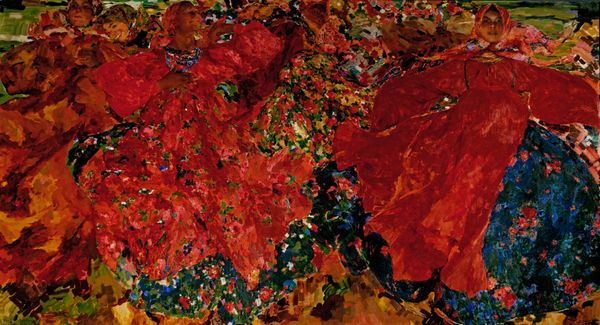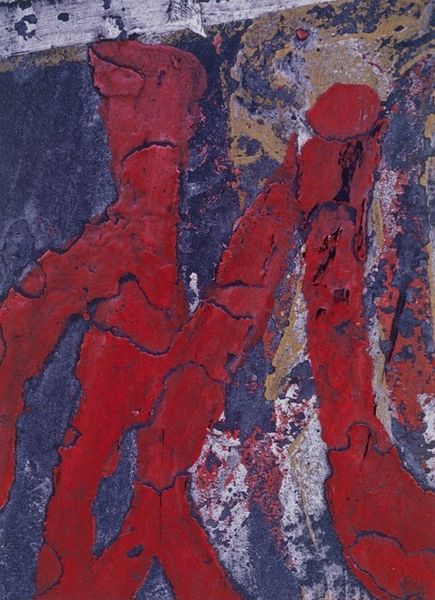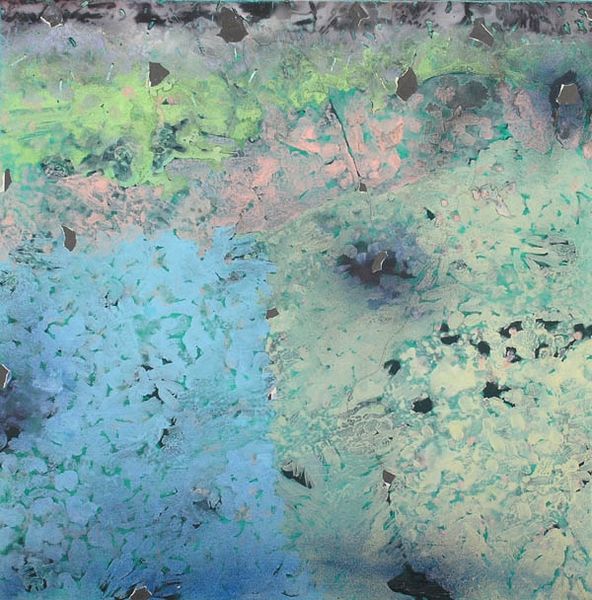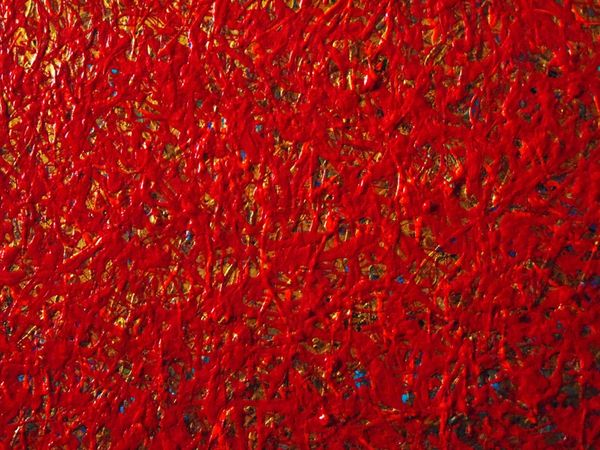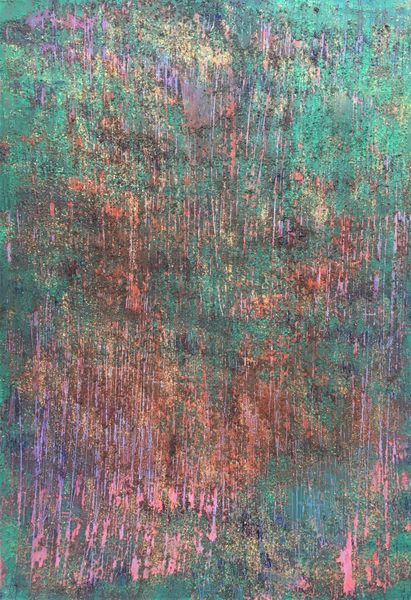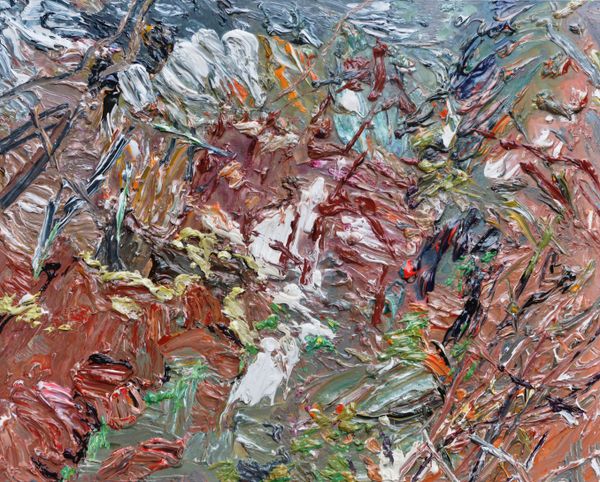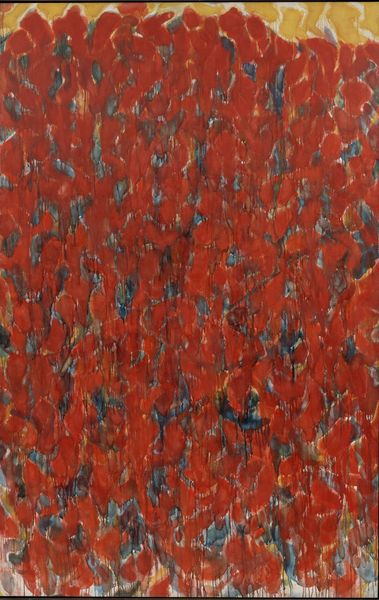
Dimensions: support: 1956 x 1778 mm
Copyright: © Thérèse Oulton | CC-BY-NC-ND 4.0 DEED, Photo: Tate
Curator: Thérèse Oulton's "Deposition," part of the Tate Collections, confronts us with a striking interplay of color and texture. Editor: It’s immediately arresting, isn't it? A visceral wash of blues and reds, almost like looking at a wound, a geological excavation, or perhaps the anatomy of power. Curator: Oulton emerged in a period where painting's relevance was being questioned. Her work engages directly with historical painting traditions, the sublime, and how those intersect with contemporary anxieties. Editor: The title, "Deposition," carries a weight, a specific art historical baggage relating to removal and loss, doesn't it? I see a conversation here about bodily autonomy, the historical exploitation of bodies, especially female bodies within artistic and social structures. Curator: Exactly. Her practice investigates the construction of historical narratives. Editor: I like how Oulton subverts those expectations, offering no clear narrative, just raw emotion and a space for viewers to project their own interpretations. Curator: It's an insightful and provocative commentary on history itself. Editor: Absolutely, a reminder of art's role in challenging established norms.
Comments
Join the conversation
Join millions of artists and users on Artera today and experience the ultimate creative platform.
tate 10 months ago
⋮
Thérèse Oulton studied at St Martin's School of Art and the Royal College of Art between 1975 and 1983 and has held solo exhibitions every year since then. She evolved techniques of brushwork from a critical study of Old Master painting but she controls her application of paint by a discipline related to recent conceptual art. The resulting images suggest a multiplicity of possible interpretations and often evoke, intentionally, the great art of the past, in particular the sublime landscape tradition. This is the first painting by Oulton to enter the collection of the Tate. Gallery label, August 2004
